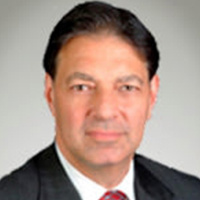Neshanic Station Juvenile Law Lawyer, New Jersey
Sponsored Law Firm
-
 x
x

Click For More Info:
-
Cohen & Bernstein, L.L.C.
1360 Clifton Ave #309 Clifton, NJ 07012» view mapCriminal Defense We’re In this Together!
We work hand in hand with our clients to ensure all of your questions are answered and progress through your legal issue is seamless.
800-978-7341
Patrick C. O'Hara
✓ VERIFIEDAccident & Injury, Personal Injury, Workers' Compensation, Criminal, Juvenile Law
Patrick C. O'Hara is a practicing lawyer in the state of New Jersey.
Blair R. Zwillman
✓ VERIFIEDCriminal, DUI-DWI, Juvenile Law
Blair R. Zwillman has over 40 years of experience with the criminal justice system. After serving as a Law Clerk to Superior Court Judge Joseph M. Thu... (more)
Sharon Brennan Ransavage
Juvenile Law, Traffic, Divorce & Family Law, Criminal
Status: In Good Standing Licensed: 44 Years
Donna S. Levinston Braff
Divorce & Family Law, Estate, Traffic, Juvenile Law, Family Law
Status: Retired Licensed: 41 Years
Kenneth A Vercammen
Juvenile Law, DUI-DWI, Criminal, Personal Injury
Status: Retired Licensed: 38 Years
Christina Previte
Divorce & Family Law, Family Law, Criminal, Juvenile Law
Status: In Good Standing Licensed: 20 Years
FREE CONSULTATION
CONTACT Lindsay Bernstein Clifton, NJ
Lindsay Bernstein Clifton, NJ Practice AreasExpertise
Practice AreasExpertise


